Bac Giang eyes sustainable and effective forestry
BAC GIANG – Authorities in Bac Giang are intensifying efforts to shift away from short-term, profit-driven forest exploitation and move toward sustainable forestry management, as deforestation and land degradation threaten long-term environmental and economic stability.
Pushing for long-cycle timber and mixed forestry
The province, home to over 120,000 hectares of production forest, is grappling with challenges from small-cycle plantation models that exhaust land resources and yield low returns.
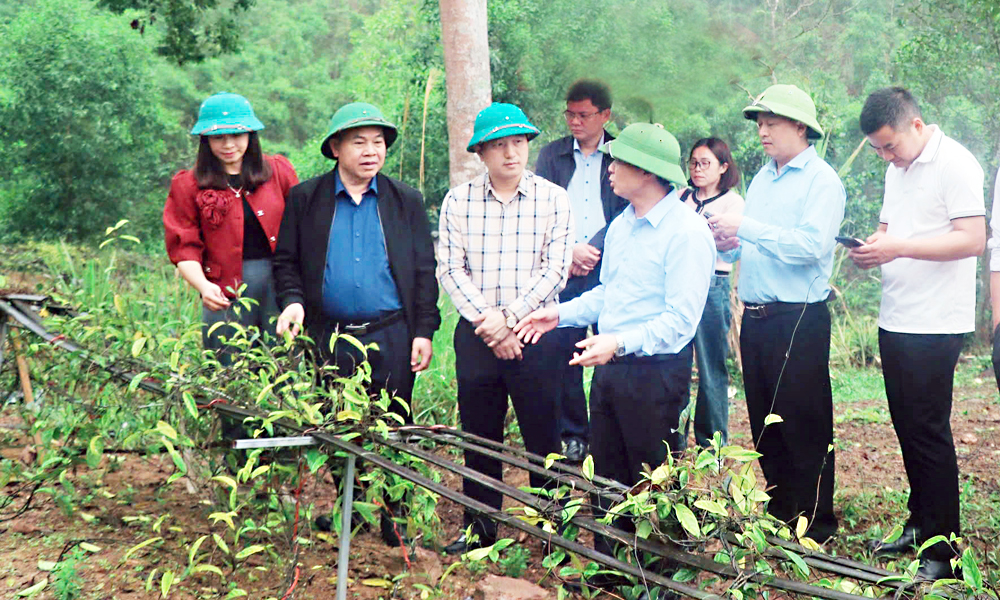 |
|
Provincial Farmers’ Union leader visits a model of Morinda officinalis cultivation under forest canopy in Thanh Luan Commune, Son Dong District. |
In some areas, natural forests have been illegally cleared to make way for fast-growing commercial plantations, particularly acacia and eucalyptus.
In Luc Nam and Son Dong districts, several cases have been prosecuted or fined in 2024 for illegal logging and conversion of natural forests into economic ones. Despite strict regulations, offenders often exploit loopholes, choosing to violate the law for immediate financial gain.
Authorities have responded by ramping up law enforcement and public education campaigns. In Luc Nam, forest rangers and local governments offer additional financial support to households managing natural forests.
Notably, a major deforestation case in Luc Son Commune this year led to criminal prosecution. Similar measures were taken in Son Dong’s Vinh An and Van Son communes.
Land-use rights policies have also come under scrutiny, as some local beneficiaries of forestland allocation quietly transfer land to wealthier outsiders. These buyers, often from other provinces, focus on short-term economic exploitation, leading to environmental degradation.
In response, Bac Giang launched its first-ever plan to promote large timber forests in 2024, converting short-cycle plantations into long-cycle ones. The move supports the province’s 2023–2030 agriculture and forestry development resolution, offering subsidies of 20 million VND per ha for fast-growing trees and 55 million VND per ha for slow-growing species.
Yen The Forestry Company, a state-owned enterprise, has emerged as a pioneer in this transition, managing over 600 hectares of large timber forest. Annual harvests of 50 hectares include acacia, eucalyptus and other valuable hardwoods.
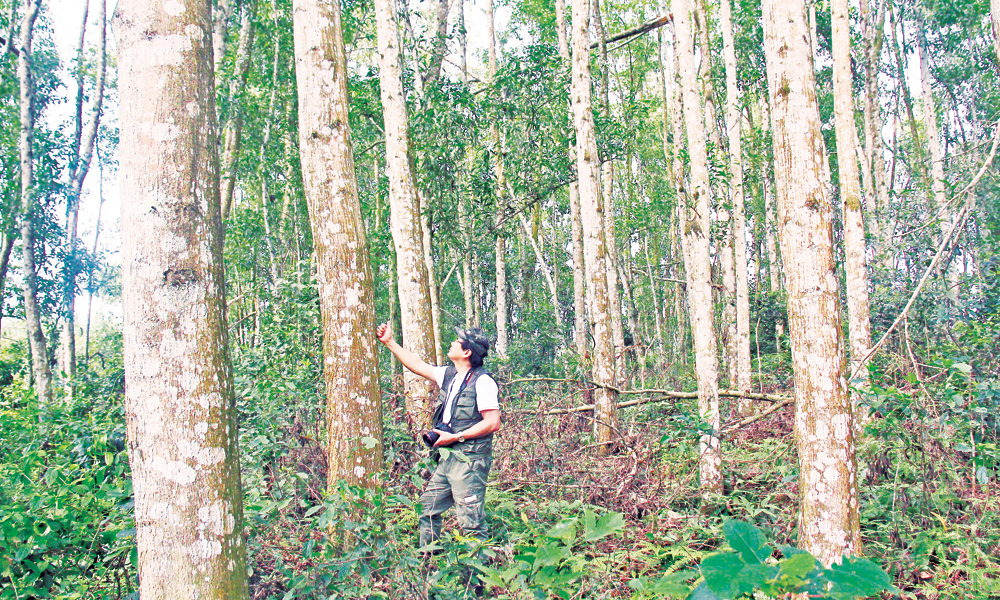 |
|
Large timber forests managed by Yen The Forestry Company generate both economic and environmental benefits. |
Company director Hoang Van Chuc noted that long-cycle forests can yield up to 300 cubic meters per ha in 12–13 years, compared to only 100–150 cubic meters per ha in 6–7 years from small timber forests. Financially, long-cycle timber fetches up to 4 million VND per cubic meters, more than double the price of small timber.
The shift has also sparked alternative income streams. In Son Dong, farmers grow medicinal herbs and native trees under forest canopies. Hoang Van Ngoc, a farmer in Thanh Luan commune, planted over 2,000 Morinda officinalis plants and earned 150 million VND in one harvest season.
Balancing economic gain with ecological responsibility
To promote traceability and access international markets, Bac Giang is developing FSC-certified (Forest Stewardship Council) zones. Many countries now require FSC certification for imported timber products.
This effort aligns with Vietnam’s net-zero carbon commitment by 2050, where reforestation and sustainable land use are critical strategies.
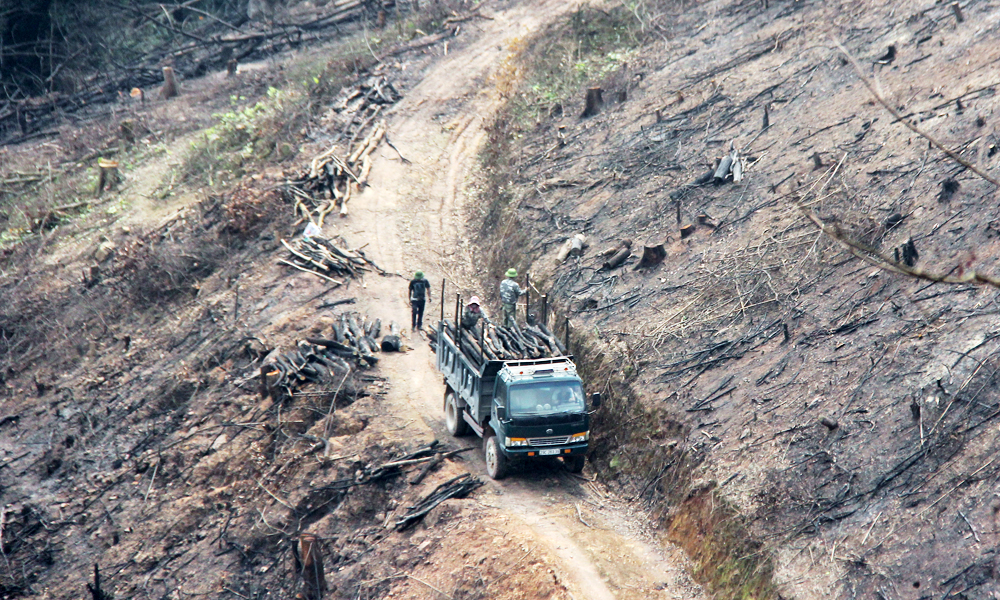 |
|
A major illegal deforestation case in Luc Son Commune, Luc Nam District, in 2024. |
Experts call for a national strategy to rezone forest plantations, improve forest quality, and encourage afforestation with native species for ecological resilience.
They also recommend banning practices like burning ground cover and mono-cropping, and adopting soil conservation techniques.
The province is also working to tighten oversight of forestland usage. Violators of sustainable forestry protocols, such as those failing to meet FSC standards, may face certification revocation. Officials warn against “greenwashing” by mixing standard and non-standard timber, undermining both conservation and market trust.
The current trend of transferring forestland to private investors has raised equity concerns, as many local, low-income households lose access to forest-based livelihoods. If unchecked, the forest could become a profit-making asset for a few, rather than a sustainable resource for many.
To reverse this, Bac Giang plans to reclaim degraded or illegally encroached natural forests for regeneration. Authorities aim to cultivate multi-purpose native species and prioritize protective trees that resist pests and storms. These steps also support carbon credit schemes, offering forest owners alternative income without logging.
The overarching goal, officials say, is to manage planted forests comprehensively and long-term. Forestry, if properly planned, can provide sustainable income, biodiversity protection, and climate resilience. Without effective regulation, however, it risks becoming an unsustainable “double-edged sword.”
 Bắc giang
Bắc giang

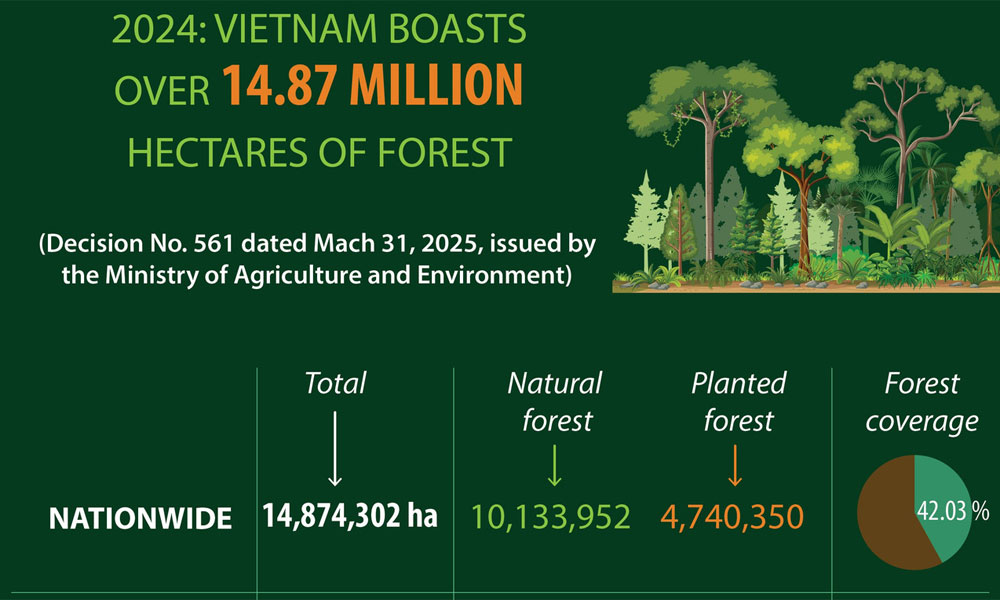





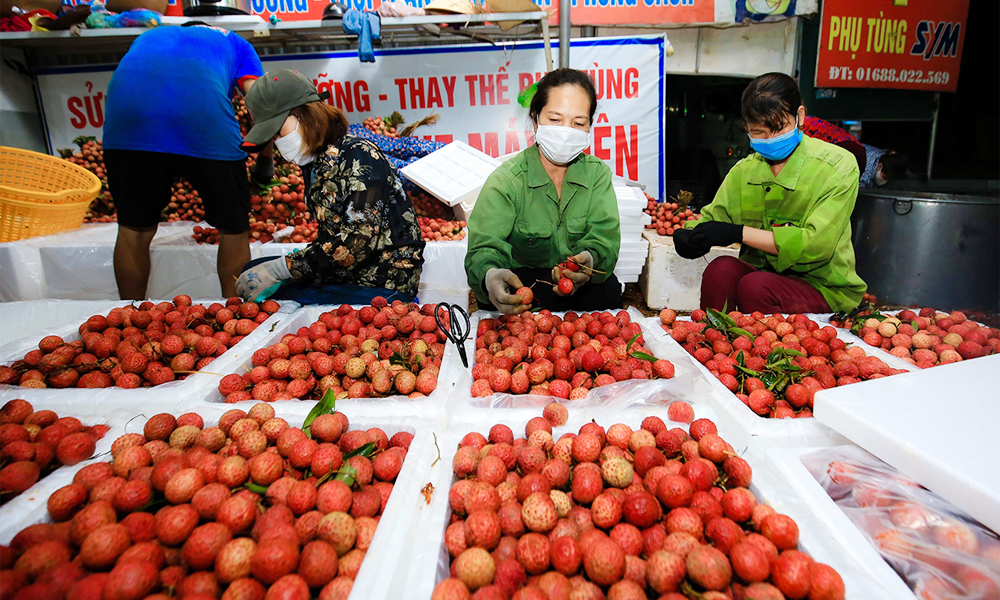

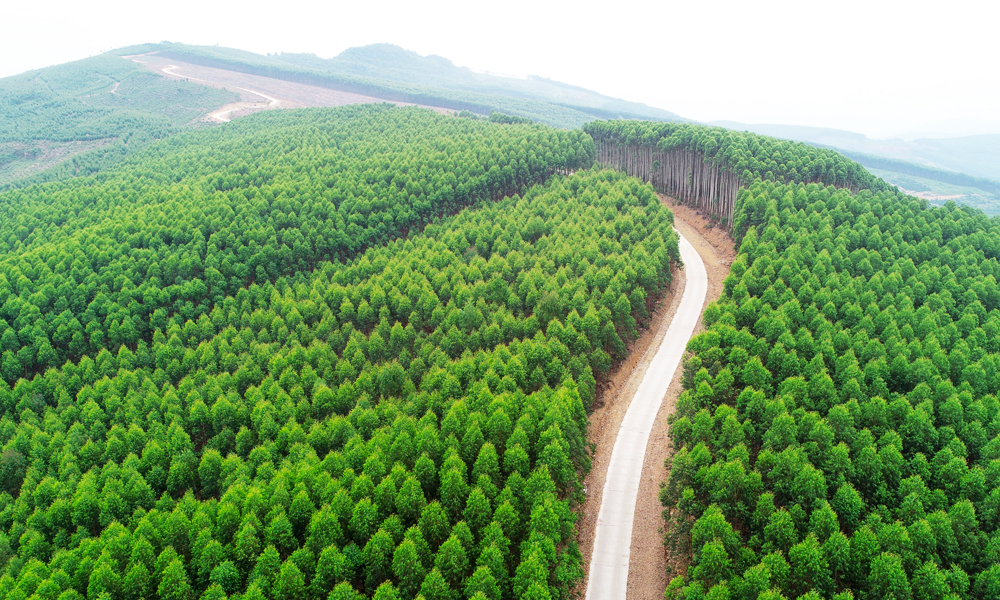
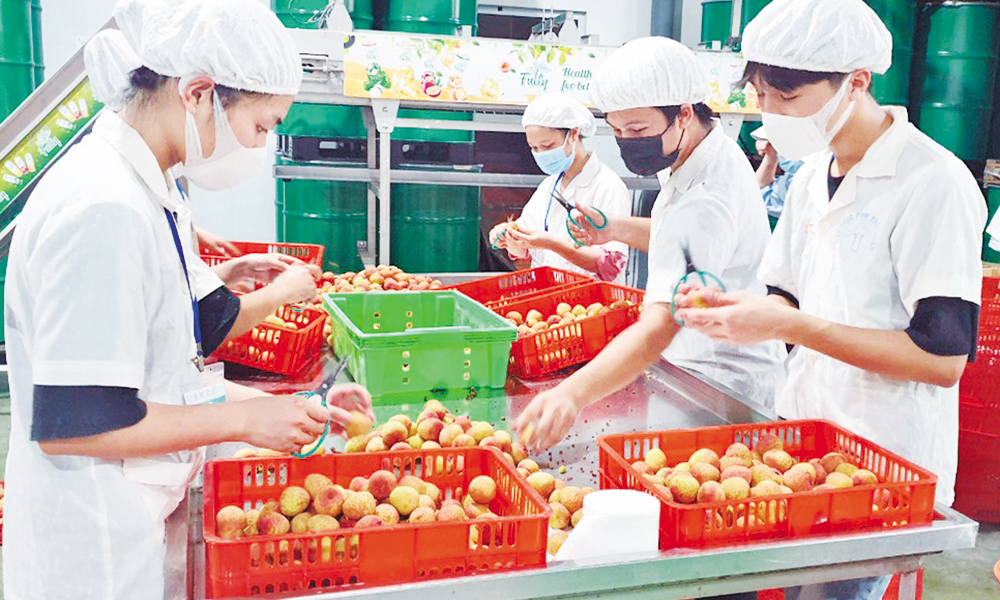
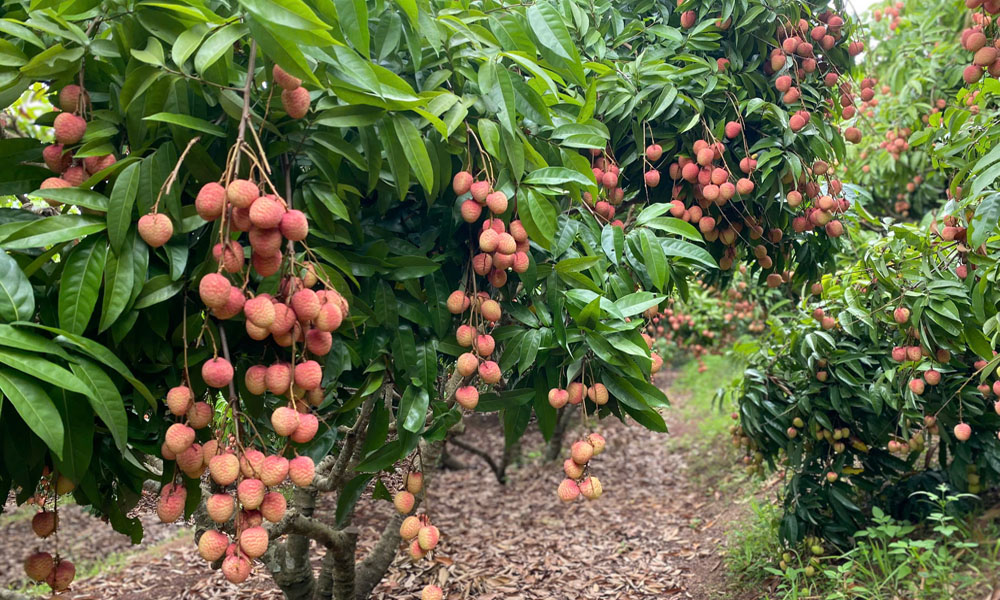



Reader's comments (0)